President Jim tour stops in Northern Virginia
Great Falls event focuses on ‘propelling JMU ahead of the pack’
JMU News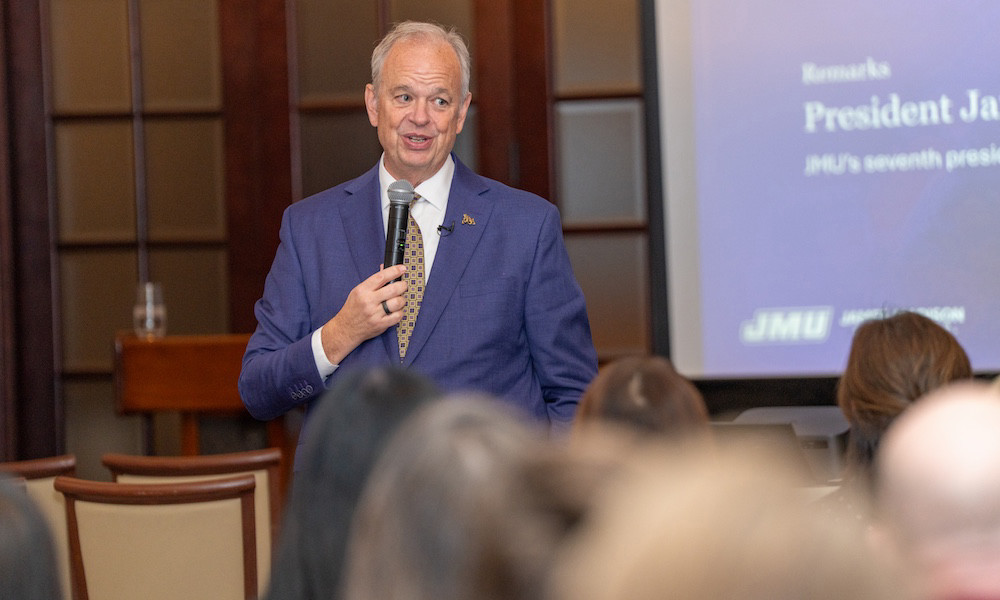
SUMMARY: At his third Presidential Tour event, "President Jim" touted JMU's ability to lead in areas like AI competency, civic engagement and work-based learning.
On Oct. 22, President James C. Schmidt took his listening tour on the road to Northern Virginia, where he emphasized the need for JMU to distinguish itself in a competitive higher education environment.
“We’re going to think big together tonight,” Schmidt told a group of about 100 JMU alumni and parents at River Bend Country Club in Great Falls. “So buckle your seat belts. We've got some big things to talk about.”
The conversation, which centered around JMU’s next Strategic Plan, touched on the funding challenges facing colleges and universities as well as a loss of public trust.
|
“We’re going to think big together tonight. So buckle your seatbelts. We’ve got some big things to talk about.” — President Jim |
The climate in Virginia is better than most states, Schmidt said. A public opinion poll conducted in May found that 92% of Virginians from across the political spectrum believe public universities in the commonwealth are primary economic engines for the state and worthy of additional support. “I can't think of another question you could ask where you would get that kind of agreement,” he said.
In a rapidly evolving workplace, the president emphasized the importance of communication, critical thinking and problem-solving skills — all qualities for which major employers in the region report hiring, and often promoting, JMU graduates. “These are no longer soft skills, they’re power skills,” he said. “They’re the things that advance you in your career.”
And at a time when some colleges are struggling and in danger of closing, Schmidt said he believes in competition, which will only make JMU stronger and position the university “to choose its own destiny.”
Specifically, Schmidt said JMU has the potential to lead in areas like AI competency, civic engagement and work-based learning, and he pointed to JMU’s existing efforts at promoting civil discourse.
“One of the biggest problems that organizations have is not being able to have those conversations that are the hardest because … we don't know how to disagree with one another in a way that’s productive, that maintains the integrity and respect of the person we’re speaking to,” he said.
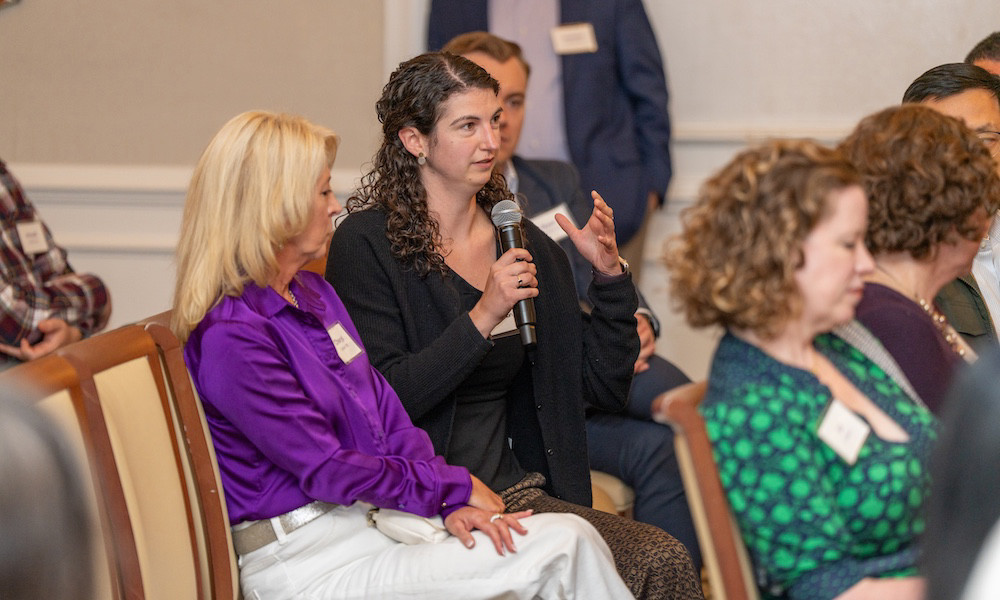
|
In response to audience members’ questions, Schmidt said JMU should prioritize academic rigor and affordability and explore partnerships with other institutions to address gaps in specialized medical care in the Shenandoah Valley. He also left the door open to expanding JMU’s presence in Northern Virginia.
|
“I knew my JMU professors. Their first job was teaching. I knew I could go up to any professor and they would know my name, they would ask me if I was doing OK and how could they help me. … I would push that really hard.” — Dr. Rachel Carson (’18) |
Dr. Rachel Carson (’18), who recently completed a Ph.D. program at Cornell University, spoke of the value of JMU’s student-centered academic culture.
“What I've realized is that the difference between JMU and institutions like Cornell was I knew my JMU professors,” Carson said. “Their first job was teaching. I knew I could go up to any of them and they would know my name, they would ask me if I was doing OK and how could they help me. … I would push that really hard.”
David Rennyson (’91), a member of the College of Business Board of Advisors, advocated for work-based learning.
“I’ve talked to some of the top students in the College of Business, and they’re struggling to get internships,” he said. “Those should be a currency that we spend easily for them. Couple what they’re learning in the classroom with some type of real-world experience … [and] I think it could be transformational for us.”
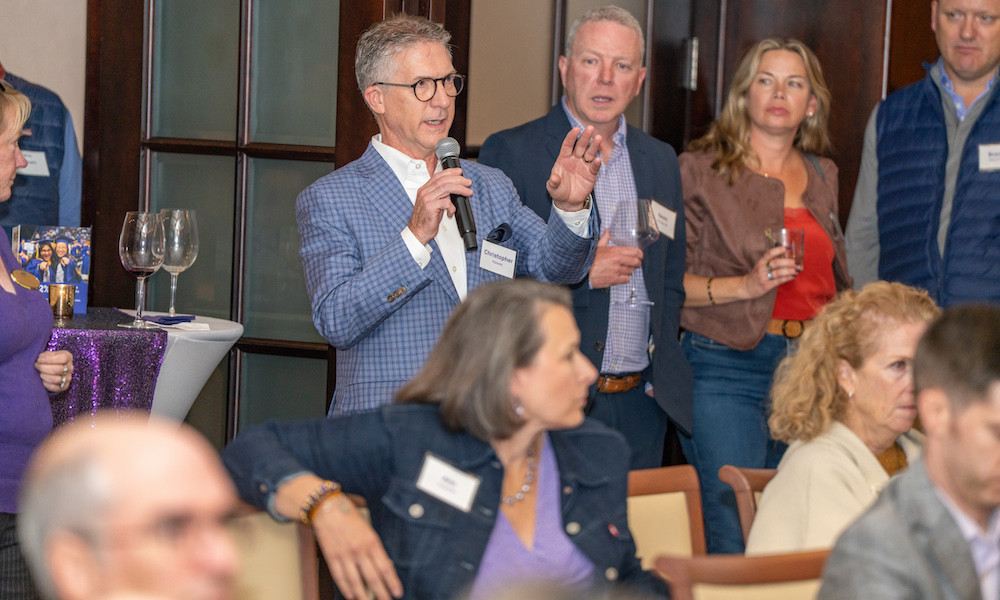
|
JMU Parents Council member Tish Tucker suggested that JMU could help fill the need for another pediatric inpatient rehabilitation unit in the commonwealth. And with the exception of UVA Health System, she said, Virginia residents don’t have access to spinal-cord injury specialists. “These may seem like niche problems,” she said, “but if you're in the market for those two services, JMU might be able to really benefit.”
Schmidt said alumni can play a key role in shaping the future of the university by supporting the strategic plan, helping uncover resources, and mentoring current students.
After hearing from President Jim, Lindsey Vivenzio (’14) said she’s optimistic about the future.
“He seems to embody a lot of what I think JMU is known for,” she said. “He’s very grounded, down to earth, hard-working, smart, and also has a very generous heart. … I think we've got a president that really embodies all of that, and it makes people feel like anything is possible.”
Share your ideas for JMU’s Strategic Plan. President Jim reads every submission.
For more information on the Presidential Tour and upcoming events, click here.
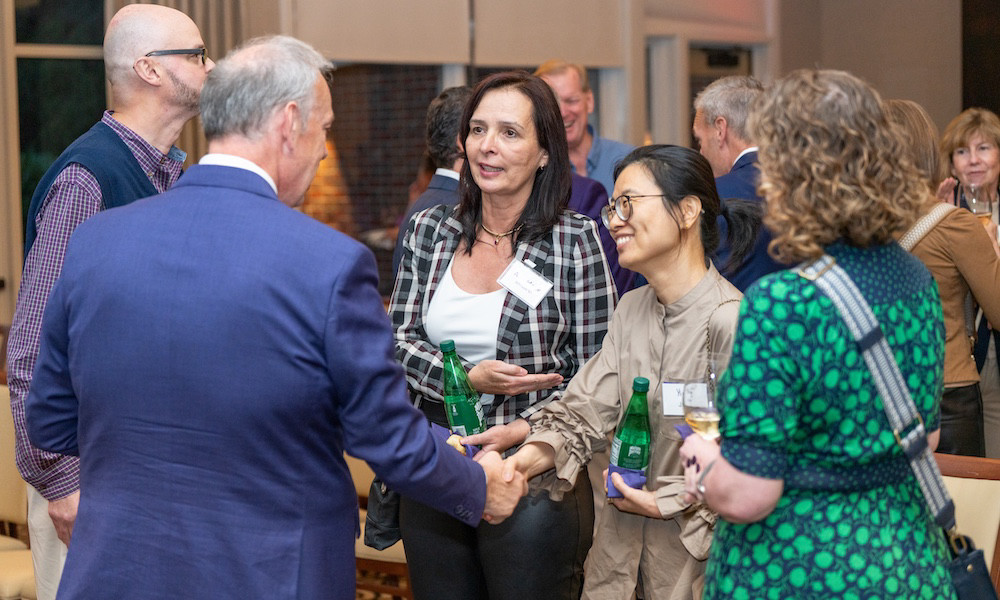
|
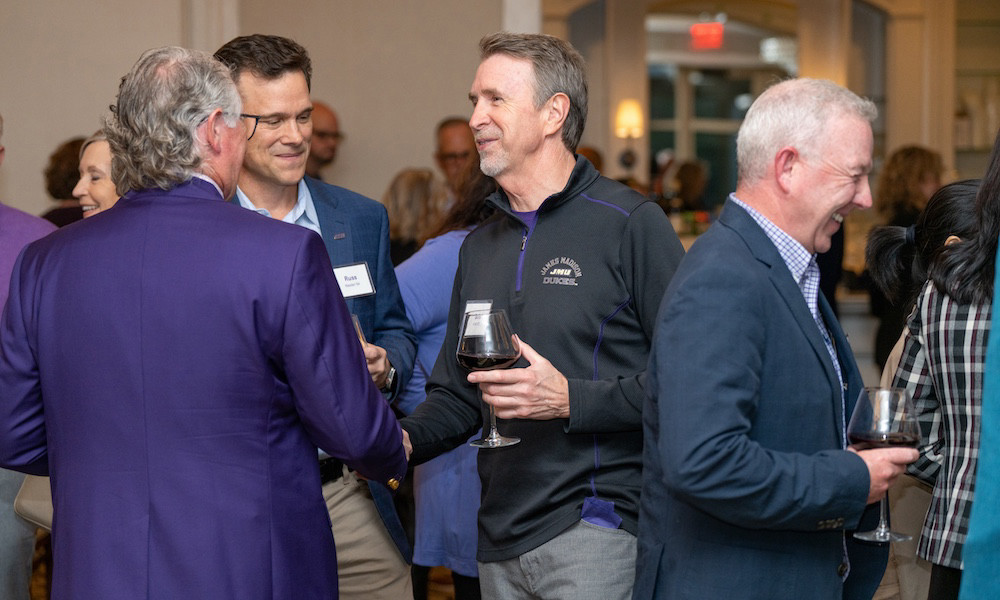
|
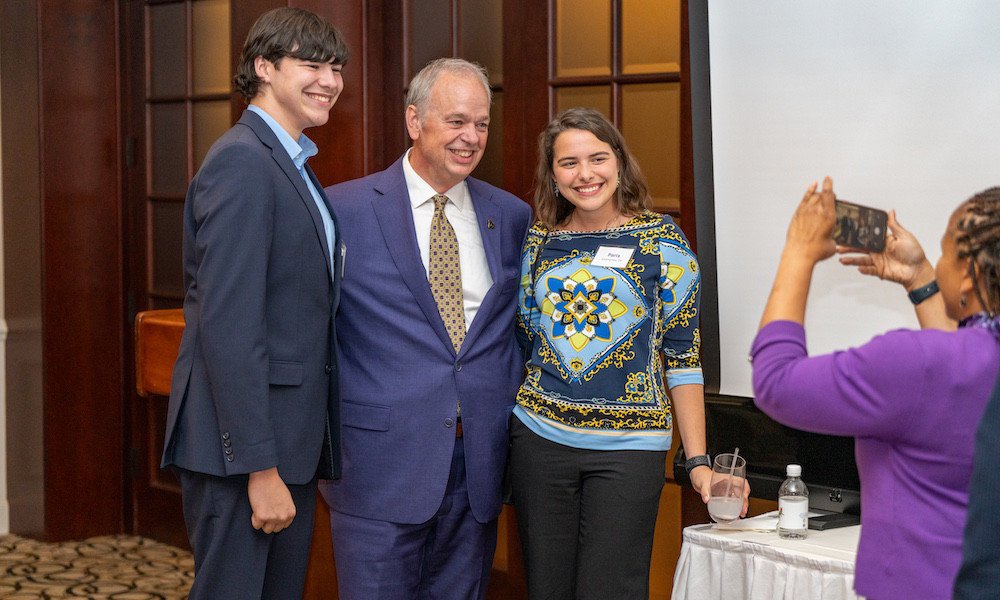
|
